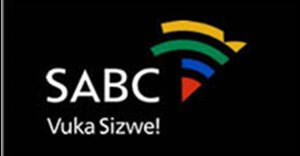The importance of independent media
This survey was funded by RS as part of its continuing series of studies on issues of general social and political interest and is one of several issues probed in August 2006. It has a margin of error of less than 2.5% for the results quoted.
People were asked to agree or disagree with the following statement: It is important to have independent TV stations, radio stations and newspapers so we get unbiased news."
Agree - 73% (blacks - 69%, whites - 85%, coloureds - 70%, Indians/Asians - 85%)
Disagree - 15%
Don't know - 12%
While there are differences between race groups (whites and Indians/Asians feel more strongly than the other two race groups), there is no doubt that the majority of people feel that independent media are highly necessary to ensure unbiased news.
Across all race groups, females are less likely than males to agree with this statement - the difference averages eight percentage points lower. There are no differences by age group but there are differences by area, partly caused by the differing racial compositions of different areas:
- Gauteng - 75% agree with this statement
- Johannesburg and environs - 72%
Johannesburg excluding Soweto - 87% (highest with Pretoria)
Soweto - 77%
East Rand - 61% (lowest level of agreement with Bloemfontein)
West Rand - 63%
Vaal Triangle and South Rand - 69%
Pretoria - 86% (Highest with Johannesburg)
Cape Town - 72%
Durban - 72%
Eastern Cape - 69%
Port Elizabeth - 66%
East London - 75%
- Bloemfontein - 60% (lowest level of agreement with East Rand)
Those with higher education and wealth levels are more likely to agree (mid 80s) than poorer people with poorer levels of education where the level of agreement drops to the low 60s.
Is the SABC perceived to be biased?
People were asked to agree or disagree with the following statement: "The SABC is not biased towards the Government."
Agree - 38% (blacks - 41%, whites - 31%, coloureds - 35%, Indians/Asians - 43%)
Disagree - 30%
Don't know - 32%
The high proportion of people who gave a "don't know" response is notable here; of those who did have an opinion, views are sharply divided. Clearly, the role of the SABC is not clear to many.
There are no major difference by gender or age except that whites females are the least likely to agree (26%). Differences by area are small in general but it is interesting to note that people in Durban (46%), the Eastern Cape (48%, especially Port Elizabeth at 51%) and Pretoria (43%) are the most likely to agree compared with only 28% in the West Rand.
All other cities have levels of agreement in the mid to upper 30s. People with poorer levels of education are more likely to agree that the SABC is not biased towards the Government (agreement in the mid 40s) compared with better educated people (upper 20s).
Media and corruption
In two separate telephone studies of metropolitan dwellers undertaken in 2005, RS found that most people feel that the media also have a vital role in exposing corruption: In January 2005, 67% of people polled felt that the media exposes most corruption. That figure rose to 74% in July.
Statement: "The media exposes most corruption."
Agree - 74% (blacks 76%, whites 65%, Indians and coloureds 78%)
Disagree - 22%
Don't know - 4%
The role of the media is clearly a central one. The importance of independent media to provide a balanced coverage is vital. Is the SABC biased? RS obtained mixed views on this issue.
- Technical note: The study was conducted amongst a sample of 2000 adults (1258 blacks, 387 whites, 240 coloureds and 115 Indians/Asians) in the seven major metropolitan areas: the study has a margin of error of under 2.5% for the results found for the total sample. People were interviewed face-to-face in their homes. The study was conducted and funded by Research Surveys as part of its ongoing research into current social and political issues
- Johannesburg and environs - 72%








